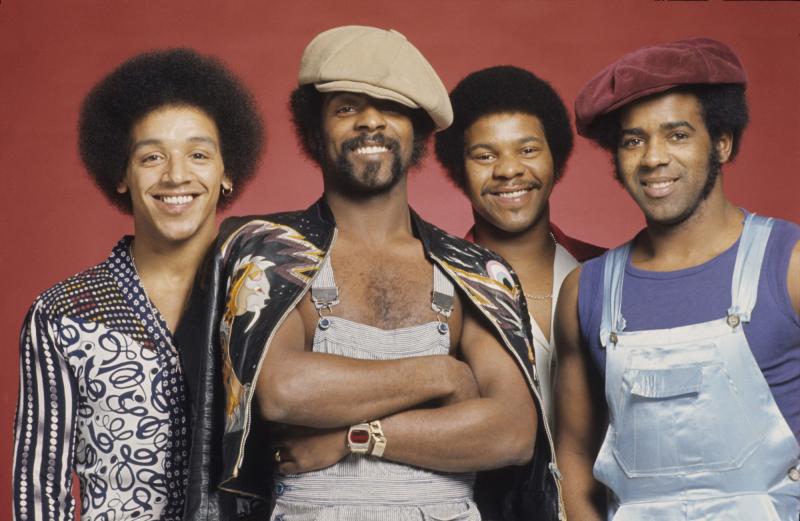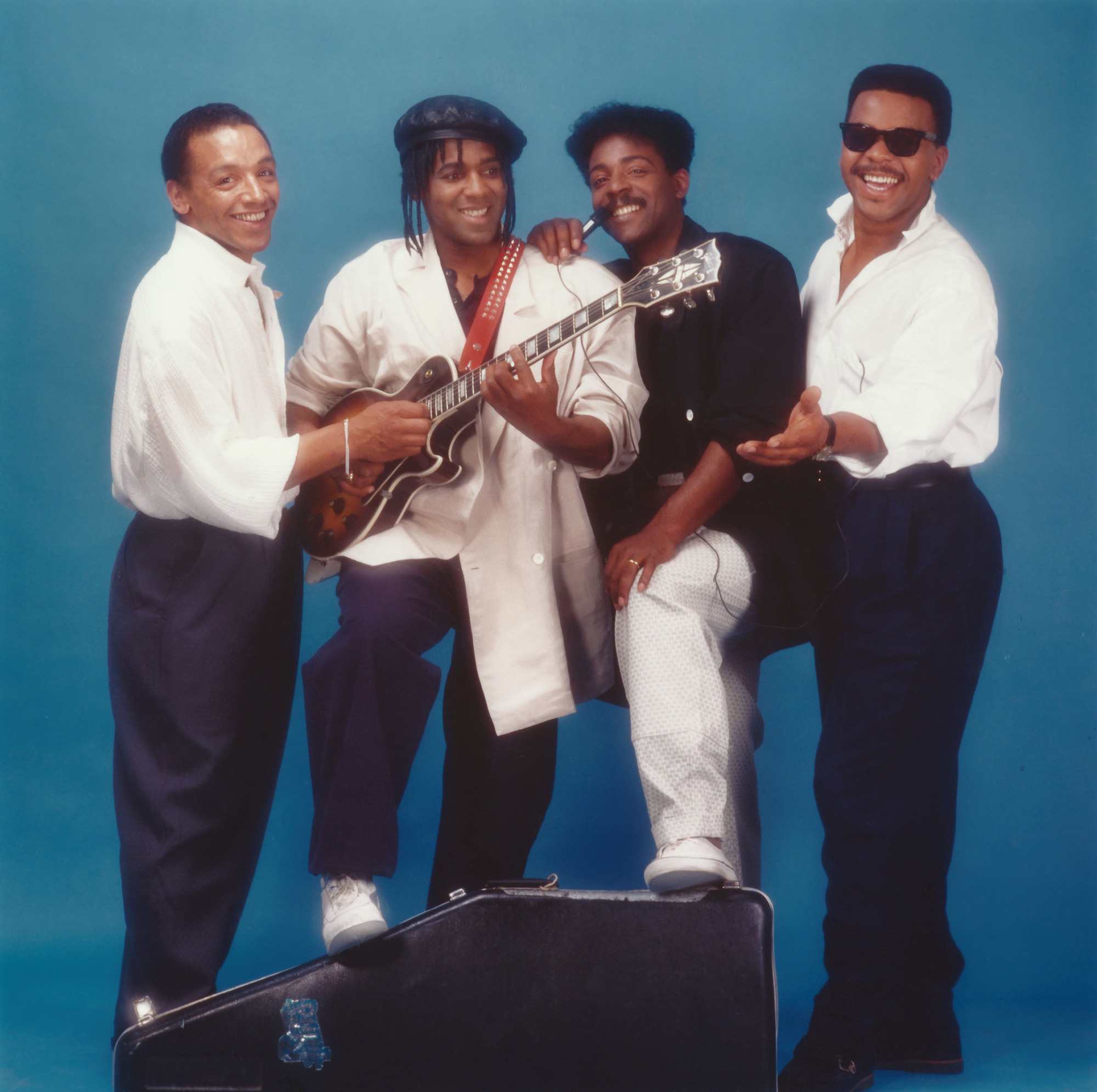Everything: The Real Thing Story, BBC Four review - brilliant but long overdue | reviews, news & interviews
Everything: The Real Thing Story, BBC Four review - brilliant but long overdue
Everything: The Real Thing Story, BBC Four review - brilliant but long overdue
The breakthrough Liverpudlian band's story told lovingly and not before time

This documentary is bittersweet viewing on quite a number of levels.
Maybe most devastating thing of all, though, is the stark fact that it’s taken until 2020, and a lot of accumulating cultural pressure, for this band to be given the courtesy of a full-length national TV documentary. Given the level of success they achieved, their musical credibility, their connections to huge names, the rags-to-riches drama and all the rest, you’d think the anecdotes here would be commonplace British music mythology. But no. It’s taken this long, and as the gripping story unfolds, it’s hard not to feel a pang at the injustice of that.
 Of course, the upside of this story being largely untold in the mainstream is that the stories here feel fresh, and the band, contemporaries, friends and fans extremely happy to tell them. There are none of the usual BBC Four usual suspects reeling off the usual anecdotes, but a wide ranging cast of musicians, DJs and commentators. The fact the majority of these talking heads are black shouldn’t, maybe, even be worth noting – but it does add weight to the story. In particular the commentators’ accumulated memories really bring home how important The Real Thing were in expressing a proud black British – and specifically Liverpudlian – identity at a time when even seeing a black face on UK TV was, as DJ Trevor Nelson says, notable enough to phone friends to remark on.
Of course, the upside of this story being largely untold in the mainstream is that the stories here feel fresh, and the band, contemporaries, friends and fans extremely happy to tell them. There are none of the usual BBC Four usual suspects reeling off the usual anecdotes, but a wide ranging cast of musicians, DJs and commentators. The fact the majority of these talking heads are black shouldn’t, maybe, even be worth noting – but it does add weight to the story. In particular the commentators’ accumulated memories really bring home how important The Real Thing were in expressing a proud black British – and specifically Liverpudlian – identity at a time when even seeing a black face on UK TV was, as DJ Trevor Nelson says, notable enough to phone friends to remark on.
The story covers a broad swathe of history, from the early '60s when The Chants, a predecessor to The Real Thing, were regularly backed by The Beatles at The Cavern and even briefly managed by Brian Epstein. The Real Thing would be formed in 1972 by Chris, younger brother of The Chants’ Eddy Amoo, clearly inspired by them but also driven on by their lack of recognition compared to their white Liverpool peers.
What happened thereafter is anything but straightforward, with the breakthrough 1976 hit “You to me Are Everything” only being the start of even more hard work to maintain success and still be the band they wanted to be. It’s by no means a hard luck story, mind, and the excellently paced direction of the documentary makes the most of the surprise ups and downs, the camaraderie and alliances, as well as the adversity and industry failings. In particular the band's attempts to find a balance between teen appeal, musical seriousness and wanting to be socially conscious and reflect their background in Liverpool's L8 postcode is deftly handled.
 There’s a tragic trajectory throughout in the story of the charismatic but always troubled Ray Lake – known as “One Take Lake” for his ability to nail a vocal first time – but again, this is woven expertly through the programme so even if you know what’s coming, it packs a serious emotional punch. Throughout, the individual characters of the band members and their collaborators shine out, and there’s a really good sense of their complex interplay without apparent romanticising. This feels like life in all its messy ambiguity, the struggle and glory entangled the whole way through.
There’s a tragic trajectory throughout in the story of the charismatic but always troubled Ray Lake – known as “One Take Lake” for his ability to nail a vocal first time – but again, this is woven expertly through the programme so even if you know what’s coming, it packs a serious emotional punch. Throughout, the individual characters of the band members and their collaborators shine out, and there’s a really good sense of their complex interplay without apparent romanticising. This feels like life in all its messy ambiguity, the struggle and glory entangled the whole way through.
There are two things that seem a little off. One is purely cosmetic: the endless cutaways to sepia-tinted shots of very 21st century looking actors acting out “1970s” scenes for colour – presumably because this was not a BBC production so archive film was prohibitively expensive – can get wearing. The other is maybe a nerdy complaint: we never hear from the band’s backing musicians, and the amount of music actually played throughout the film is small. But these are minor quibbles. Overall this is a masterful bit of storytelling – about a brilliant band, who, after decades of being all but written out of history, deserve nothing less.
rating
Explore topics
Share this article
The future of Arts Journalism
You can stop theartsdesk.com closing!
We urgently need financing to survive. Our fundraising drive has thus far raised £49,000 but we need to reach £100,000 or we will be forced to close. Please contribute here: https://gofund.me/c3f6033d
And if you can forward this information to anyone who might assist, we’d be grateful.

Subscribe to theartsdesk.com
Thank you for continuing to read our work on theartsdesk.com. For unlimited access to every article in its entirety, including our archive of more than 15,000 pieces, we're asking for £5 per month or £40 per year. We feel it's a very good deal, and hope you do too.
To take a subscription now simply click here.
And if you're looking for that extra gift for a friend or family member, why not treat them to a theartsdesk.com gift subscription?

Add comment